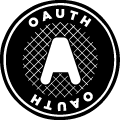 I’m pleased to announce that release candidate versions of the soon-to-come OpenID Connect Implementer’s Drafts have been released. All the anticipated breaking changes to the protocol are now in place, including switching Discovery over from using Simple Web Discovery to WebFinger and aligning Registration with the OAuth Dynamic Client Registration draft. While several names changed for consistency reasons, the changes to Discovery and Registration were the only architectural changes.
I’m pleased to announce that release candidate versions of the soon-to-come OpenID Connect Implementer’s Drafts have been released. All the anticipated breaking changes to the protocol are now in place, including switching Discovery over from using Simple Web Discovery to WebFinger and aligning Registration with the OAuth Dynamic Client Registration draft. While several names changed for consistency reasons, the changes to Discovery and Registration were the only architectural changes.
Please thoroughly review these drafts this week and report any issues that you believe need to be addressed before we release the Implementer’s Draft versions.
Normative changes since the December 27th, 2012 release were:
- Use WebFinger for OpenID Provider discovery instead of Simple Web Discovery. This also means that account identifiers using e-mail address syntax are prefixed by the
acct: scheme when passed to WebFinger.
- Aligned Registration parameters with OAuth Dynamic Registration draft.
- Added Implementation Considerations sections to all specifications, which specify which features are mandatory to implement.
- Removed requirement that the “
c_hash” and “at_hash” be computed using SHA-2 algorithms (for crypto agility reasons).
- Refined aspects of using encrypted ID Tokens.
- Finished specifying elements of key management for self-issued OPs.
- Added “
display_values_supported“, “claim_types_supported“, “claims_supported“, and “service_documentation” discovery elements.
- Defined REQUIRED, RECOMMENDED, and OPTIONAL discovery elements.
- Refined Session Management specification, including descriptions of OP and RP iframe behaviors.
- Deleted “
javascript_origin_uris“, which is no longer present in Session Management.
- Added new “
session_state” parameter to the authorization response for Session Management.
- Added new “
post_logout_redirect_url” registration parameter for Session Management.
Also, renamed these identifiers for naming consistency reasons:
user_jwk -> sub_jwk (used in self-issued ID Tokens)token_endpoint_auth_type -> token_endpoint_auth_methodtoken_endpoint_auth_types_supported -> token_endpoint_auth_methods_supportedcheck_session_iframe_url -> check_session_iframeend_session_endpoint_url -> end_session_endpointtype -> operation (in Registration)associate -> register (in Registration)application_name -> client_namecheck_session_endpoint -> check_session_iframe
See the History entries in the specifications for more details.
The new specification versions are at:
Thanks to all who did so much to get us to this point, including the spec writers, working group members, and implementers!
 The OpenID Foundation members have voted to approve a second set of OpenID Connect Implementer’s Drafts. The working group intends for the final specifications to be compatible with these Implementer’s Drafts.
The OpenID Foundation members have voted to approve a second set of OpenID Connect Implementer’s Drafts. The working group intends for the final specifications to be compatible with these Implementer’s Drafts.





